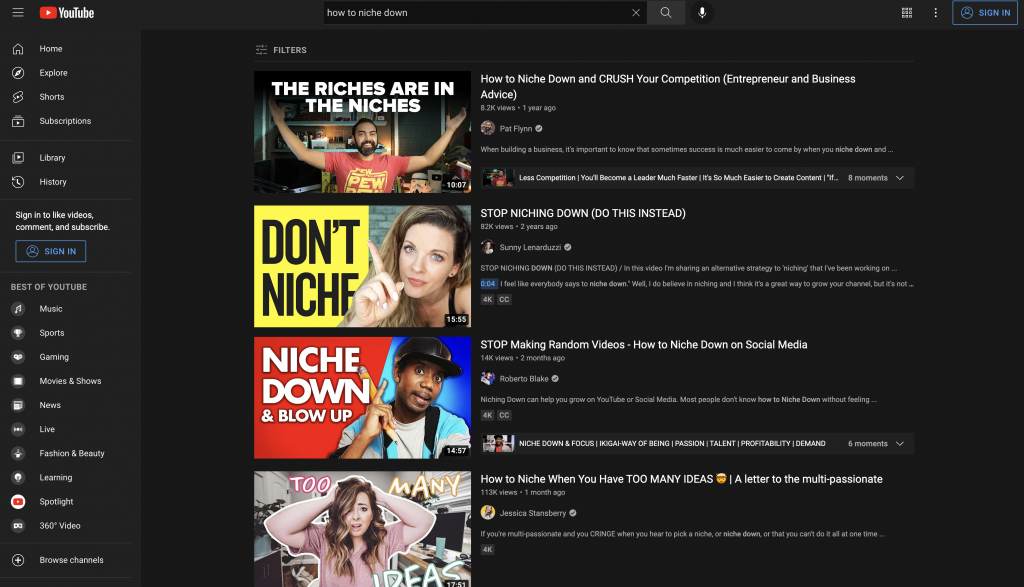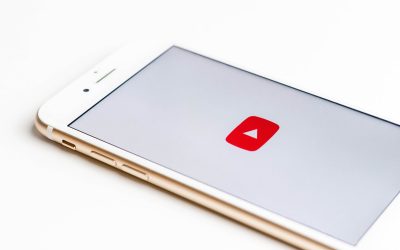YouTube is the second-largest search engine in the world, and its parent company Google is the largest search engine in the world. But when the average person or even the average content creator, thinks about YouTube, Search is not the first thing that comes to mind. Yet every day the average person uses YouTube as a search engine to find answers to their questions or to look up product reviews. YouTube is undeniable, for many people, a search engine.
So does optimizing content for YouTube search matter in 2022? The answer of course is a YES.
YOUTUBE CREATORS RESIST AND RESENT SEO AND SEARCH
The conversation around YouTube SEO when it comes to content creators really focuses on one thing and one thing only: “Will this help me get more views on YouTube?” That is the position and lens through which most creators view any YouTube tools, features, or YouTube Advice.
Here is the question I prefer to ask: “Does this have any value to the viewer?”
YouTube search would seem to hold very little value for those who want to make a name for themselves. These creators are focused on trends and viral content. They also prefer to focus on being recommended by the YouTube Algorithm to the homepage and suggested videos feed. They see little value in search since it is less than 10% of all YouTube traffic. The views from search also don’t cater to the content they want to make in niches like Gaming, Vlogging, and Challenges. These niches focus on a younger and more broad audience.
The irony is that one could make a living and grow very steadily and consistently through search content without ever going viral or relying on timing trends.
There are also many niches and genres within YouTube in entertainment categories that would still benefit from Search Engine Optimization, but beyond that, just properly optimizing content to be identified correctly.
Creators resent search traffic because they view it as a lesser opportunity and the content strategy as less interesting or attractive and would prefer to go viral through recommendations.
HOW DOES YOUTUBE SEO WORK?
Search Engine Optimization is exactly what it sounds like, optimizing your content to rank in search for relevant search terms and phrases. With regard to YouTube, this would mean optimizing your videos in such a way that allows them to rank and compete in Google and YouTube’s search results pages (SERPs).
Below you can see how for the search phrase “how to niche down” I ranked 3rd for a recent video of mine, and this is in an incognito tab, meaning it was not influenced by my account history.

The Key to RANKING in YouTube Search is Relevancy and Recency. Of these two factors, RELEVANCY takes the highest priority and there are several factors YouTube uses to determine the relevancy of a video for a search query.
Most YouTubers spend too much emphasis on TAGS in their video metadata instead of KEYWORDS in their video title, description, and the content itself. Matching the tags to these other factors can help as a manual check and balance for the relevancy of a video, but should be considered a lower-ranking factor than the title, content/captions, description, and overall video performance relative to the other results.
YouTube needs to determine that your title is not DECEPTIVE, not Clickbait.
Overall, the YouTube algorithm needs to be able to make a fairly quick determination of what your video is about and to be able to verify that, and that users themselves feel your content doesn’t misrepresent itself.
This is why despite YouTube publicly stating that “tags don’t matter”, which is not what they said, the complete phrasing is “tags don’t matter as much as Creators think they do”, until or unless YouTube removes the tags feature, you should try to utilize it in a sensible way.
HOW TO USE YOUTUBE TAGS PROPERLY
Tags in YouTube do help serve a purpose, just like in any other search engine system they help with categorization. When someone asks, “do tags matter on YouTube?” I often retort to them: “Do you think tags matter in Amazon, or in the Walmart Shopping App, or Netlfix?” and as you might expect they say “of course they do, how would I find anything without them being labeled like that?”
Yet when it comes to YouTube there is the assumption that tags are worthless. The idea that tags are worthless comes from a few different places.
For one thing, larger YouTubers get millions of views and it doesn’t seem like their tags matter or influence this in any way shape, or form. The problem with this is small YouTubers who are not famous think that things that Famous YouTubers do, apply to them also since they are on the same platform.
It should be painfully obvious that a large YouTuber doesn’t necessarily have to jump through the same hoops as a small YouTuber if they are well known, famous, and have a loyal fanbase.
When it comes to using tags properly, it’s about as simple and straightforward as thinking of your content as a product, or even as a book.
Tags can help you categorize your content and who it is for and make it easier to identify who the content should be placed in front of for viewing. This makes sense to content creators who deal in education-based content or product reviews but it also makes sense for anyone covering news, commentary, gaming, or franchises as well.
Most creators just struggle with clear examples of how to properly label the tags of their YouTube content if it’s not purely education-based content or tied to an existing brand or franchise.
The key here is to NOT expect this to result in more views, but to prioritize helping the system put your content in front of the correct viewers:
Consider labeling tags with the following information:
- What genre is your content in (podcast, stocks, film criticism, anime, review, news, comedy, gaming)
- What is the subject matter in the video? (StarWars, Hayden Christiansen, George Lucas, Dave Feloni)
- Who is featured in the video? ( your name, guests, person mentioned)
- Features of the video (4K, Closed Captioned, Live, Listenable, Replay, Interview)
- Location if relevant (United States, Georgia, Atlanta, DragonCon)
- The Series Name is part of a series or a playlist
Here is a video deep dive on YouTube Keyword Strategy






0 Comments